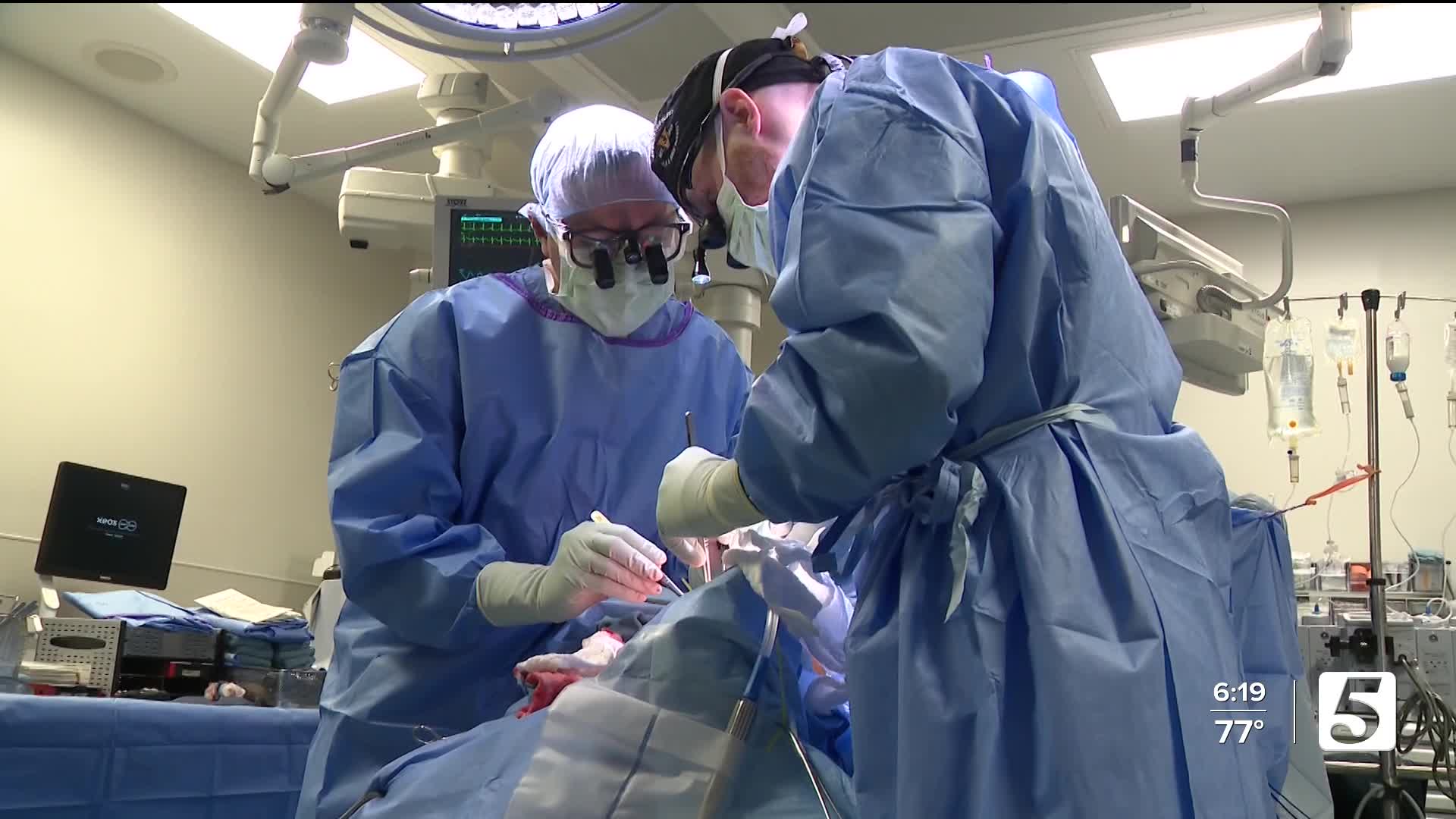NASHVILLE, Tenn. (WTVF) — Last month, Vanderbilt University Medical Center identified a life-saving way to improve medical procedures in real time.
In a brand-new clinical trial, the Head and Neck surgery team at VUMC is using an intraoperative PET-CT scanner inside the operating room.
Inside an oral cancer surgery, Dr. Michael Topf explained that the use of the scanner — which shows the cancer in its entirety — is making history. His team is the first to introduce it into the OR in the United States.
"This technology...it will potentially allow us to know we removed all of the cancer in real time during the surgical operation in a matter of 8-10 minutes," he explained.
Before this trial — which is still very much in its early stages — scans would be sent to pathology after surgery, a process that could take weeks to return data.
The novel approach adds another element of surprise, too: Radioactivity. In surgery, the patient gets a small dose of a radioactive agent, which allows the tumor, once removed, to be visible on the scan.
Marcus Balanky, the radiation safety officer, is tasked with monitoring radioactive levels in the room, making sure the entire team inside the OR is safe. In fact, each team member wears a special ring for radioactive monitoring.
"Since it's a novel approach, it's a new approach, we're just getting data on the levels," he explained.
With radioactivity managed, the scanner becomes a promising new asset, allowing for a thorough assessment of a cancer and its spread and saving time for surgeons and patients alike.
"These cancers can be really, really challenging, even for experienced surgeons. So you know, as many as 20-30% of cases, for advanced head/neck cancer cases, we do not get all the cancer," said Dr. Topf. "So a device like this, and a protocol like this, really has the potential to improve patient outcomes."
Their fourth surgery is planned in just a couple of weeks. Overall, Vanderbilt plans to do about 50 cases within the trial.
Do you have more information about this story? You can email me at nikki.hauser@newschannel5.com.

The Jefferson Street Sound Museum is a great little gem in North Nashville. The founder and curator turned his home into a museum to keep the legacy of historic Jefferson street alive. Now, it's been named a stop on the U.S. Civil Rights Trail. Aaron Cantrell takes us inside.
- Lelan Statom





